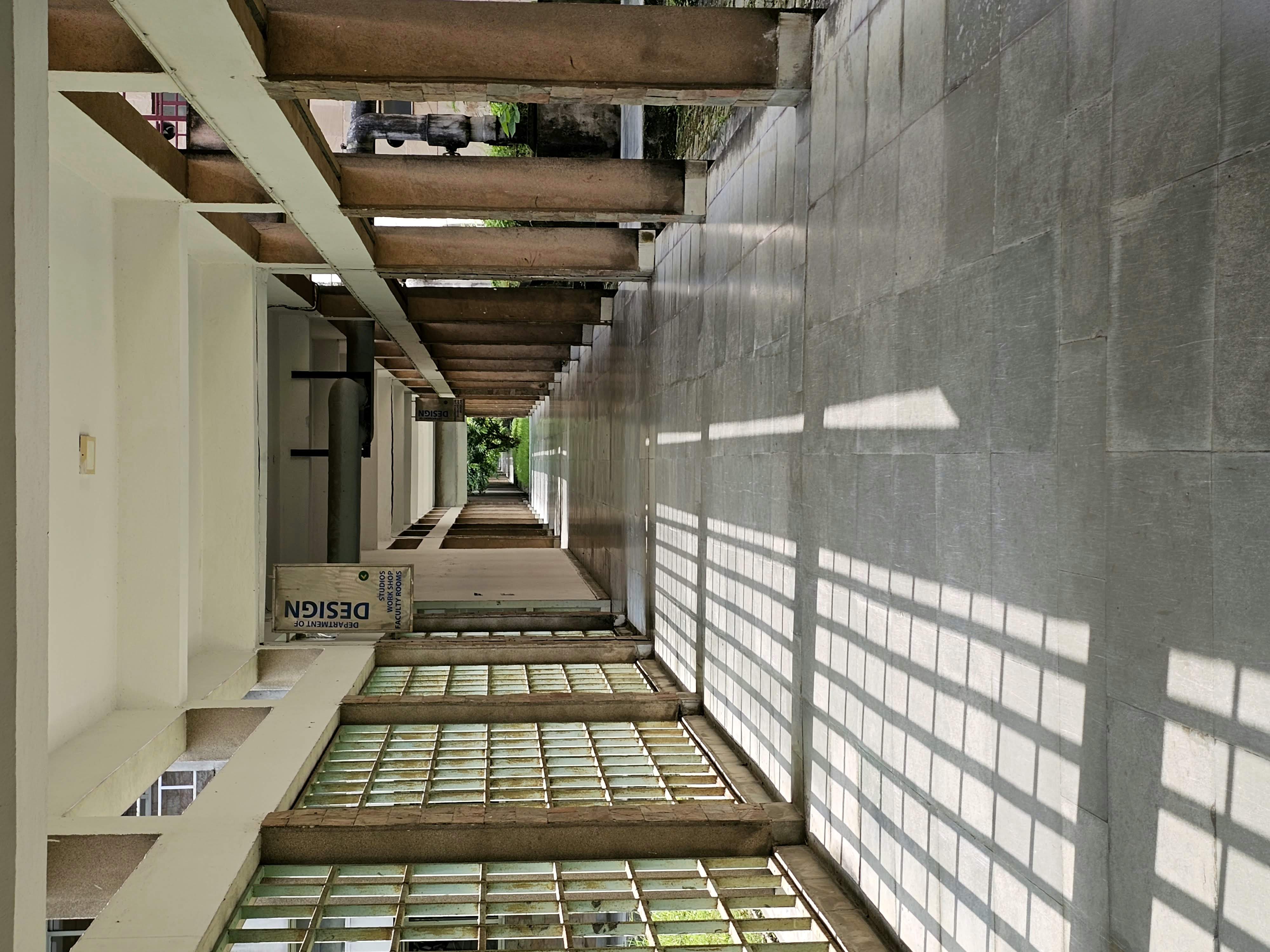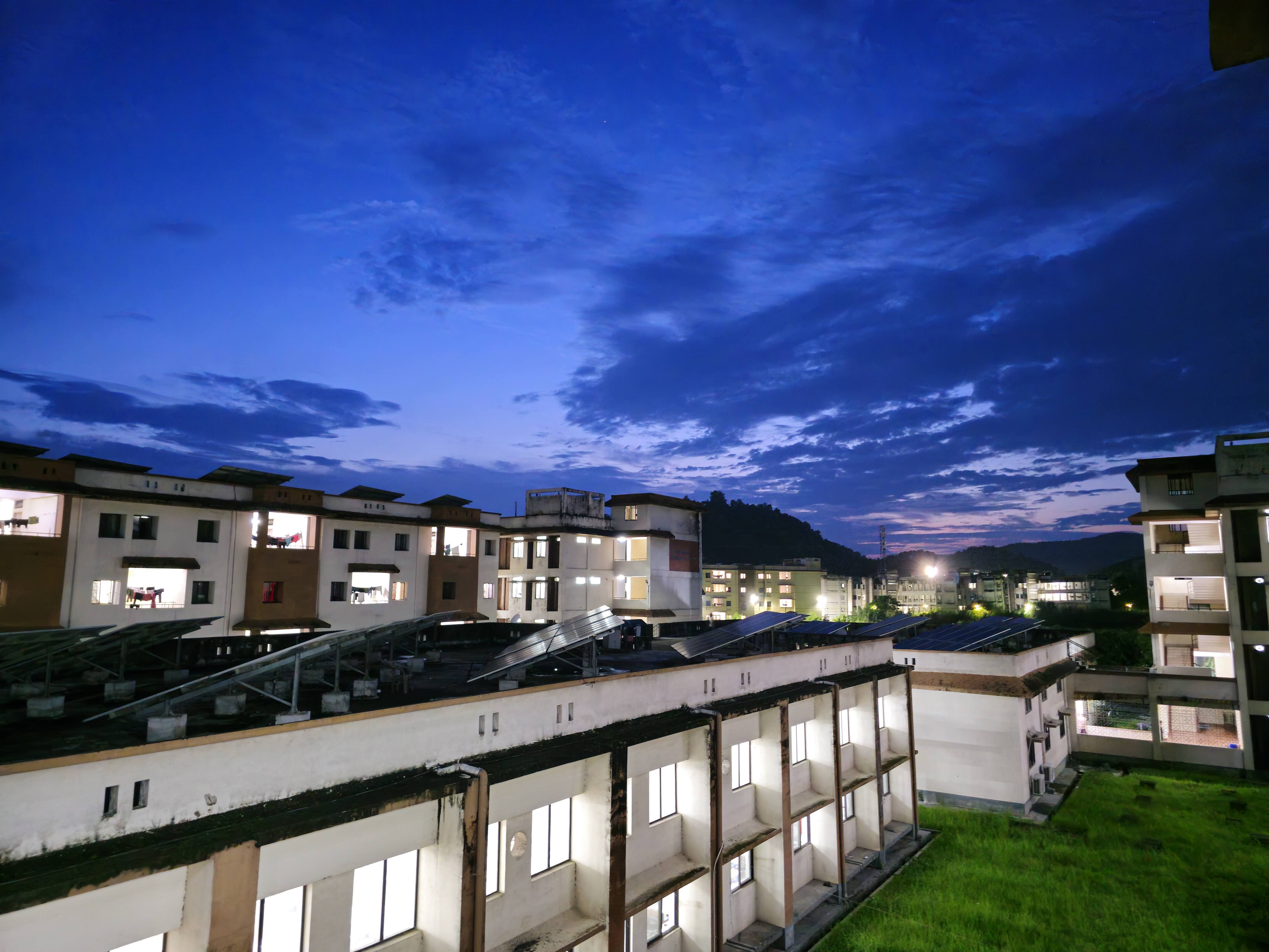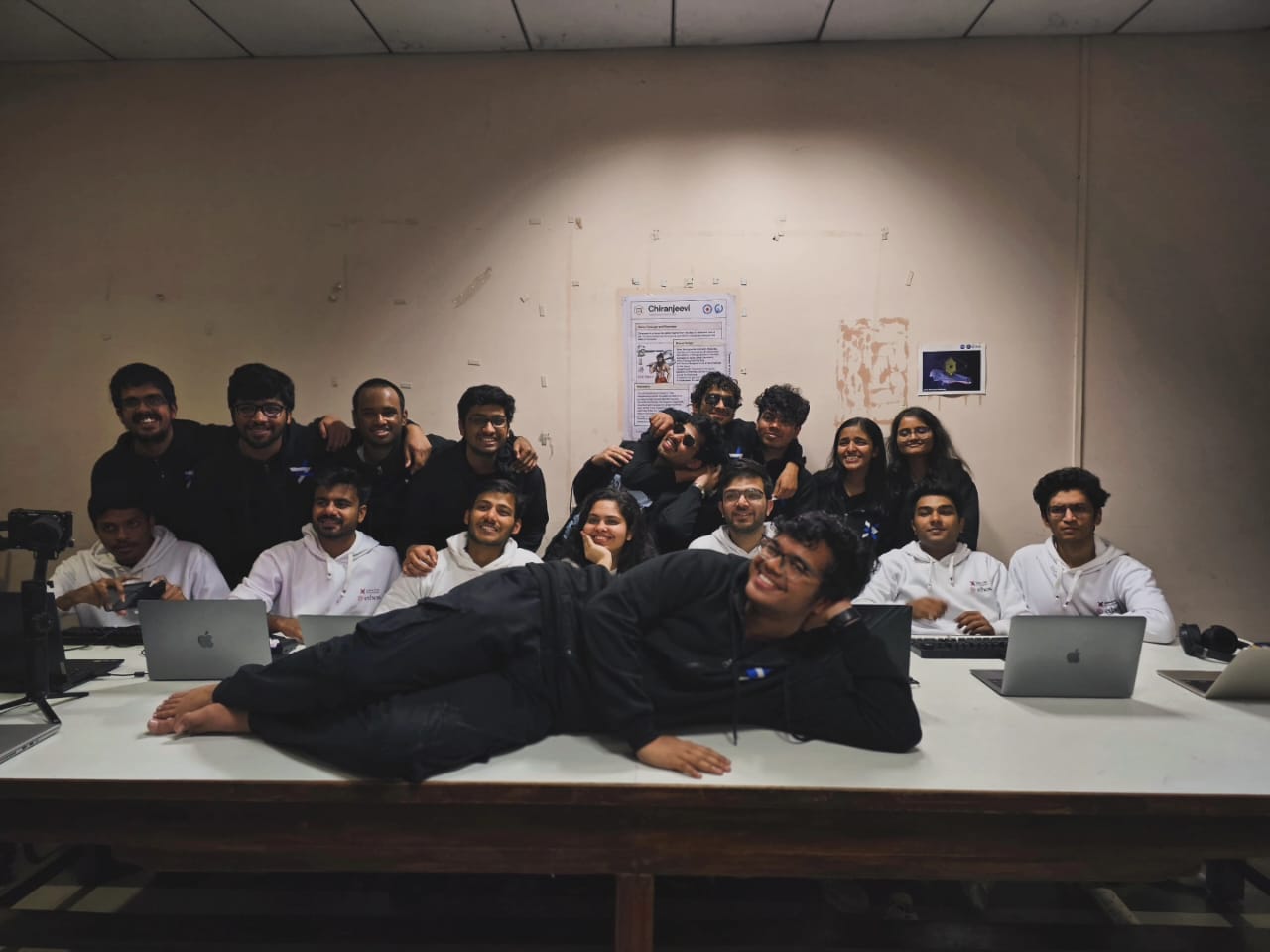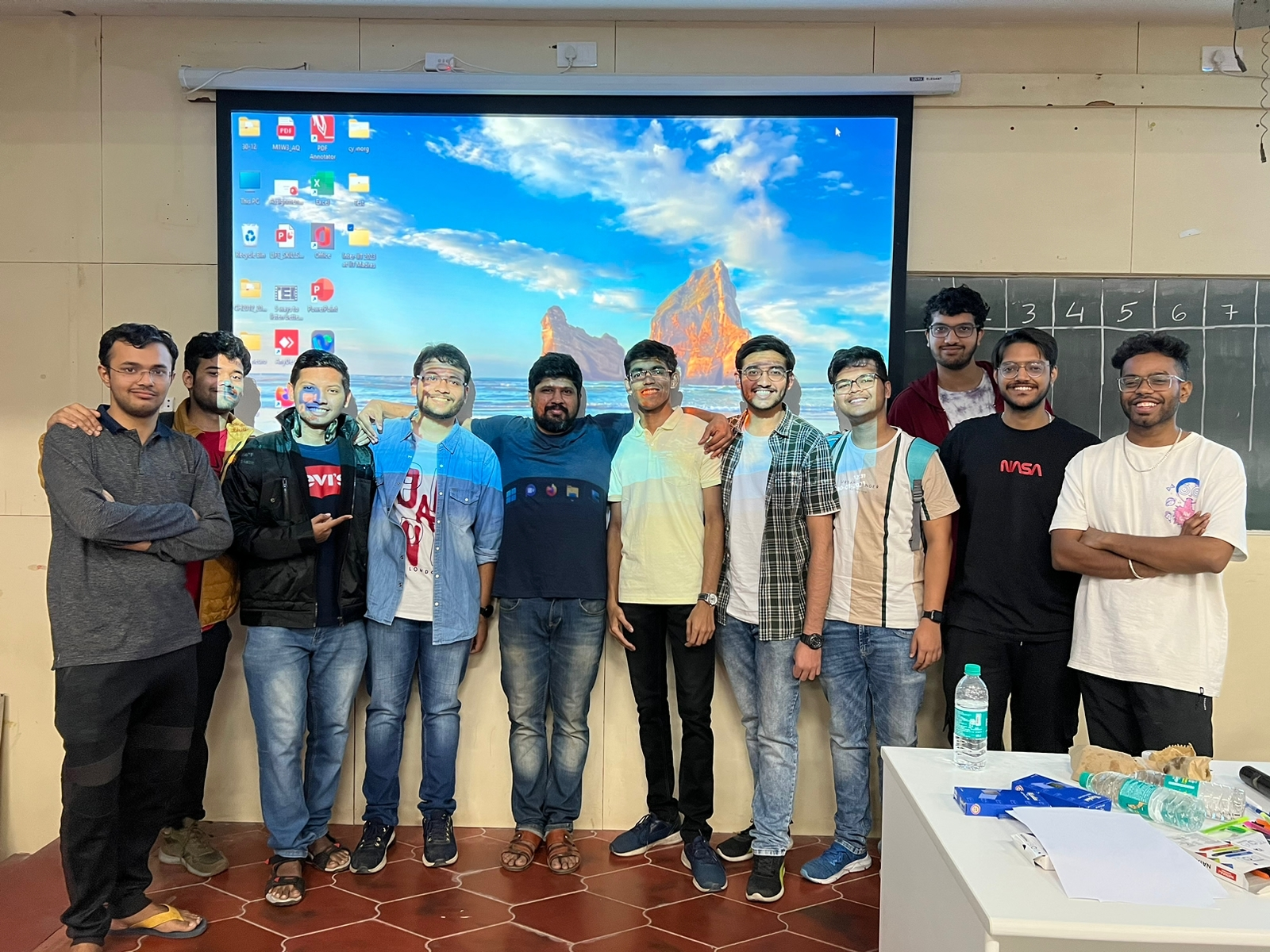Everything you need to know about IIT Guwahati CSE
Hey there, if it is your first time here, I am Gunjan Dhanuka and I completed my BTech in Computer Science and Engineering at IIT Guwahati in 2024, with a Minor in Robotics and Artificial Intelligence. This blog is aimed to be what I was looking for when I was considering joining IIT Guwahati CSE after my JEE Advanced 2020, and it was difficult talking to a number of seniors and past students, to know about the different aspects of what IITG CSE had to offer. This will also be helpful to students already studying at IITG CSE, as it hopes to give a high-level view of what lies ahead, and contains tidbits of advice from a senior (me) to a junior (you). In this writeup, I have tried to summarize (almost) all aspects of IITG CSE, and leave pointers for more in-depth exploration wherever possible.
I also made a YouTube video on this topic, if you are someone who prefers watching over reading:
Academics
Having completed the degree in 4 years and with a CPI of 9+ out of 10, I can confidently advise any incoming freshman that academics is very very important. It single-handedly has the potential to open or close a lot of doors for you. Maintain a high CPI and you will have the option to choose your favorite Minor, sit for high-paying Quant companies (more on this later), go for foreign research internships and have a significant edge while applying for MS/PhD later.
CSE at IITG is a eight-semester program1, usually finished in four years. The grading in courses at IIT Guwahati is not very easy but not very tough either, a lot of it depends on the professor though. In our batch, about 20 students out of 125 in our batch had a overall CGPA of above 9 out of 10 after the four years.
You can also take up a minor in a number of subjects, although the most popular ones for CS students are AI and Product Design minors. The Minor course grades are not added to your overall CGPA but are displayed on the transcripts, however you can drop a minor if you don’t want to continue at any point of time.
Let’s discuss what each year entails, in detail:
First Year
In your first year, the courses are common with all other branches. This is also the chance to get a very high CPI, since the grading is relative w.r.t. to the entire batch, and not just within CSE. I found a few courses like PH101, CS101, MA102 interesting, but the other courses weren’t so much fun for me. Given that our first year was spent at home (thanks to COVID-19), the lab courses were mostly useless for us (except the CS lab). I especially disliked the CE101 (Engineering Drawing) course where we had to draw diagrams using drafter and stuff, and the grading too was dicey since the diagrams were also evaluated through scans 😵. The MA101 course is infamous for being a shocker after your JEE Maths, so spend enough time solving problems from the book. You will get previous year materials from your seniors and CourseHub, which will be absolutely crucial in scoring well in many of the courses.
All that being said, first year is the time where you should also come out of your JEE bubble, and start socializing with people around you. Spend time with people in your hostel, your dept or some sports team, and see who is most compatible with you. Some of those people will become your best friends in the next couple of years.
Second Year
It is from the second year onwards that the actual CSE curriculum gets underway. I would say you to study all courses seriously without a bias, as this year will give you a feeling on what you might want to pursue in the coming years. Discrete Maths is a course that forms the basis for FLAT later, and these courses are very important if you are considering going further in the theoretical route. DBMS is a very significant course, and doing it well would serve you nicely in your career. Try to study further from books if you think the classroom material is not advanced enough, and you can also look up lectures by Andy Pavlo who teaches this at CMU.
The Maths Dept courses can have finicky grading, so again be wary of who is teaching you. Computer Arch and Hardware Lab are especially important if you are interested in doing hardware research, working on OS and Compilers, etc. Systems Software Lab was very fun for us, we worked with a number of languages and made fun projects like Scripting using Awk, CLI Spell Checker with Perl, a mini Linux Terminal using C++ and AI-powered Tic-Tac-Toe in Python.

Third Year
In the third year, you get to study core CS courses like Computer Networks, Operating Systems, Software Engineering, Machine Learning and Compilers. This set of courses is arguably the toughest at any CS Dept across the world, and you will be bombarded with readings, assignments and oral exams. This will really prepare you for most of the real-world coding that you will do. You will ideally spend most of your time this year in the CSE Lab, which is a fantastic place to do group assignments and watch movies 😜. The importance of the courses I listed earlier cannot be emphasized enough, they really are the most important courses of your CSE degree. Make sure that you understand what you are doing, and don’t copy code blindly from other folks/GitHub. It will truly set you apart from thousands of other CS grads. I personally struggled with the Optimization course, partly due to my negligence, but it isn’t too difficult if you just make sure to study throughout the semester (and not the night before 🥲).
Apart from these, there are also department electives like VR/AR Systems, Cryptography, Intro to NLP, Network Security, IoT and Smart Systems Lab (SSL). In SSL, we worked on a smart bicycle using a number of sensors.
Fourth Year
The fourth year is relatively chill in comparison to the previous three years you would have (hopefully) passed. Here you also have the option to take up the BTech Thesis Project (BTP) which will replace two courses in each of the final two semesters. If you are interested in exploring research or want to go for further studies, be sure to take up a BTP and do well in it. My BTP Project was on Hardware Security at the MARS Lab of IIT Guwahati with Prof John Jose and Prof Sukumar Nandi. We will also discuss about the research opportunities later in the blog. Here the number of electives increases, and you can choose whatever course you like from the floated options. I took up Parallel Algos, Hardware Security, Mathematical Finance and Blockchain.
You also take up a total of 4 humanities courses throughout your BTech. I took courses like Intro to Indian Epics where we read and analysed the entire Mahabharata, and Modern Western Drama where we studied works like Waiting for Godot and Machinal. There are other HS electives like Philosophy of Science, Game Theory, Economics, History of Modern India, Cognitive Psychology, etc.
Drawbacks
However there are things that lack academics-wise at IITG. Firstly, undergraduate students are not allowed to do TAship unlike some other tier-1 colleges, the course materials are outdated for quite a few courses and the flexibility of the curriculum is very less. There are fixed credits each semester, and you cannot finish your courses earlier and go for a semester internship at a university or company. The department electives floated are also very few, and often due to schedule clashes the choices are further reduced. All in all, the course structure itself is definitely adequate to lay the foundation for any kind of role you might want to take up after BTech, but won’t make you a specialist in anything unless you are willing to explore further.

Campus Life and Facilities
One of the perks of IIT Guwahati CS is that from the second year onwards, each student is allotted a personal computer in an air-conditioned lab. The computers have been upgraded to Intel i5 or i7, which suffice for almost all course needs. The lab is a great place to hang out for doing assignments, studying together before exams, and watching movies 😛. Moreover, there is a department library where you can study if you find the institute library to be full. You can also request access to supercomputers like Param Ishan and Param Kamrupa for any heavy experiments that you might have to run. Don’t forget to check out these college fests which you’ve probably already seen in some amazing aftermovies!
Talking about the campus, IIT Guwahati is one of the most beautiful campuses in the country, and walking at night after banging your head on assignments will be something you’ll always cherish. There are ample sports facilities, and cultural and technical student clubs to handle your extracurricular needs. The hostels are twin-shared for the first two years, after which you get single rooms. Our batch was the last to have single rooms for all four years. 😎

Research Opportunities
The research culture at IIT Guwahati Computer Science isn’t as strong as older IIT’s like Bombay, Delhi, Kanpur etc where you get ample opportunities from the department to take up research projects under professors. There are no formal programs for undergrad students except the Thesis projects. Hence, the research output involving undergraduate students is less compared to the top 3-4 IITs.
You can look up the Faculties on the CSE Department’s website to learn more about the active research areas in which professors are working. Also, check out their Google Scholar pages to see who has been actively publishing in recent years. Some of the most active areas of research are Computer Architecture, Hardware Security, Computer Networks and Security. There are labs like Robotics Lab, UCCN Lab, Networks Lab, Speech Lab, Multicore Architecture Lab, Multimedia Lab, etc. where PhD students do research.
I felt that the CSE Department also currently lacks enough professors working on cutting-edge areas in ML. However, a new department for data science and AI was established recently, where you will likely find faculty aligning with your research interests, especially in AI.
If you are really interested in pursuing research early on, it is recommended to visit the professors in person and discuss their expectations, requirements, and the research conferences they target. You can also go for summer research internships in your second and third year, although the number of students who go for that is relatively much less, if any. You can take up remote internships to work along with your semester as well (that’s what I did, a blog on it soon too).
Internships and Placements
Now, in the section for which you will be the most excited about, we will talk about the career opportunities and outcomes from BTech in IIT Guwahati Computer Science. The Center for Career Development (or CCD) of IIT Guwahati handles the internship and placement activities on campus. There is an official internship drive after you complete your second year, where many companies come to hire interns in roles like Software Engineer, Quant Researcher, Data Science, and so on. The statistics for the CSE Department are usually the best amongst all other branches, and most students get an offer quite early. Companies that have hired interns in the past include Google, Microsoft, Quadeye, Alphagrep, Rubrik, Databricks, JP Morgan, Goldman Sachs, Oracle, Sprinklr, etc. The internship stipends reach a maximum of about 4.5 lakhs per month, especially for HFTs2. There are also international roles offered by a few companies, eg: Rubrik, Databricks, etc. IIT B, D, M, K have more international offers than IITG, and similarly IITG fares way better than the newer IITs.
The placement season begins at the beginning of the fourth year after you complete your summer internships. Those who receive pre-placement offers cannot sit for placements but instead spend time exploring research or other extracurricular activities on campus. Some also apply for companies off-campus. For others, the coding tests begin around Oct i.e. after midsems, and interviews start on December 1, i.e. after endsems. Again, CSE Students usually bag the highest packages and are placed quite early. The packages range from about 15 lakhs all the way to 2 Crore (for international roles) per annum. However, it is important to know that these packages are CTC’s and the actual in-hand cash salary is just a fraction of this amount.
All in all, the placement at IIT Guwahati is at par with all other older IITs especially in product-based companies. The number of quant and non-tech companies that visit here are fewer though.
Alumni Network and Peer Group
The peer group at IIT G CSE is very diverse and competitive in a healthy way. You will find someone who is doing cutting-edge research, someone who excels at hacking stuff out, someone who can understand all theoretical courses, someone who has a Greek-god physique, someone slogging it out for that off-campus role, etc etc. An advantage of having such high cutoff is that the folks who come here are very hard-working and motivated. Though Guwahati’s weather does make people complacent, you’ll definitely find enough folks who are dead serious on whatever they are doing. And it is always a pleasure to know such people. The best thing about IITs (especially the older ones) is the peer group, and not the professors or the facilities. It is these group of people around you who keep you motivated, celebrate when you succeed and are there to support you when you need it the most. I am glad I could make many such friends during my IITG days 🤍.
IIT Guwahati was established in 1994, and hence its alumni network is strong as compared to newer IITs, yet lacks when compared to other older IITs. This is obvious since many of our alumni are still young, working on their startups, climbing in the corporate ladder or pursuing research in their field. From IIT Guwahati CSE, you can find people pursuing Masters and PhDs in top universities like Carnegie Mellon University, UIUC, Georgia Tech, UT Austin, etc. Moreover, IITG CSE alumni are working in leading positions as managers or engineers in the international offices of big-tech firms like Google, Meta, Microsoft, etc. Quite a few folks have also started their own ventures, and there is some support available within IITG as well to support startup ideas.
The best way to find alumni associated with your line of thought is to explore LinkedIn. LinkedIn is often overlooked by college undergrads as simply a place where nerds boast about themselves. If you use the platform properly, you get to network with people far far away from you, and it is these networks that will serve you best when you want to apply to that dream school of yours, or need a referral for that awesome role, or simply need life advice from someone who was once there where you are now. It would be a strong advice from me to every student to network as much as possible on LinkedIn. No need to keep scrolling through memes and influencers, instead see what successful people (whatever maybe your definition of success) are doing.
Clubs and Student Bodies
IIT Guwahati has a very active culture of student bodies and clubs compared to other older IITs. The technical and cultural clubs compete to be the most attractive and influential on campus, leading to a higher standard set every year for projects, events, and workshops. I have been the Secretary of the Coding Club IITG in the past, where we released free courses for the campus junta and beyond, conducted workshops on hot tech stacks, and mentored projects for the campus junta to build their profile. We also conducted open-source events and hackathons like CodePeak and Ethos. There are also very active technical clubs in finance, consulting, AI, robotics, aeromodelling, electronics, etc. You can also indulge in cultural hobbies like drama, music, debate, quizzing, dancing, and art, as the club scene is also very vibrant there. I recommend you check out the Instagram pages of various IITG clubs because that’s where they are most active.

The Computer Science and Engineering Association (CSEA) is a student-body that works for the welfare of the CSE Department students by conducting everything from talks on cracking placements and internships to intra-department sports tournaments like Badminton and Table Tennis. They will conduct your Freshers’ Party when you arrive at IITG, and the Farewell Party when you’re about to graduate.
We have constantly been performing brilliantly in Inter-IIT competitions, especially in tech and culture, and improving in sports every year as well. Inter-IIT Competitions are very competitive and many IITs give it their all to win these contests. I have been the Contingent Leader of IIT Guwahati in the Inter-IIT Tech Meet 12.0 held at IITM, where we stood 4th amongst 22 IITs. Actually, we have been positioning in the top 5 for the past 5-6 years at the technical meet and we usually are the top finishers in AI, Product Development, Robotics, Quant Finance and Game Development.

Conclusion
I hope this blog gave you a good idea of what IIT Guwahati is about, and what it can offer to you. If you are evaluating IITG CSE with something like IITD EEE or IITK EEE or IITKgp Dual degree, keep in mind that branch change is dependent on a lot of factors and may even be totally removed soon 3. If you are sure that you want to do CSE from first-year itself, IIT Guwahati will be perfect for you. However if you are unsure and think that an older IIT will give you more exposure, feel free to talk to an ex-student. I always wanted to go for a Masters at a top university, even before I had decided to go to IIT Guwahati. IITD EEE seem liked a good choice considering the brand name of IITD, but I am sure I wouldn’t have enjoyed the EEE courses for four years. And after getting admitted to CMU, I am very happy that I came to IITG. The journey was definitely not the smoothest, and I even questioned my choice sometimes. But as always, I believed in Do your best, and forget the rest and destiny helped along the way.
All the best,
G.D.
Feel free to contact me at gdhanuka192@gmail.com or https://www.linkedin.com/in/gunjan-dhanuka/.
Special thanks to Aman Bucha, Anindya Vijayvargeeya and Siddharth Bansal for giving me feedback to make this writeup more complete.
My blog on my experience in Freshman Year at IITG - https://gunjan-dhanuka.medium.com/freshman-year-at-iit-guwahati-ecfb8d8032cb
-
Website: https://www.iitg.ac.in/cse/btechcsecoursestructure2018onwards.php#PagePosition ↩
-
HFT’s are High Frequency Trading firms that basically do trading in the market at very low latencies. They trade a lot of different instruments like assets, options, stocks, etc using algorithms that allow them to buy and sell trades in very short intervals. Such firms usually require people with knowledge of low-level system programming to program fast compilers, or good mathematical aptitude to develop models. ↩
-
https://insightiitb.org/removal-of-branch-change-policy-behind-the-curtains ↩
Enjoy Reading This Article?
Here are some more articles you might like to read next: